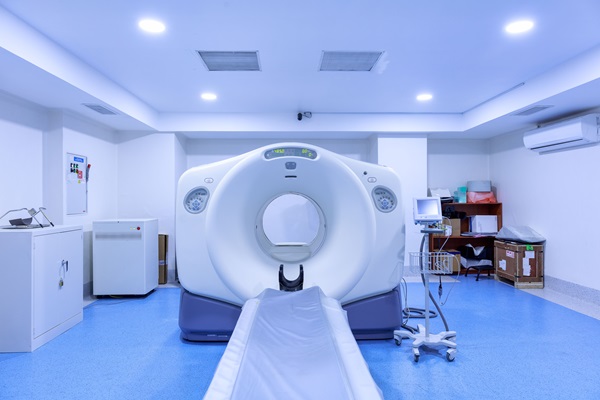When Should You Get an Ultrasound?

If you are wondering when you should get an ultrasound, you are in the right place. Ultrasound, also known as ultrasonography or sonography, is a diagnostic imaging technique that is non-invasive and uses sound waves to create images of the body. This technology can be used to diagnose a variety of conditions and can also provide a glimpse into the development of a baby in the womb. We will discuss when you should consider getting a sonogram and how it can help with your healthcare.
If you are experiencing symptoms
If you are experiencing any symptoms that could be indicative of a medical condition, it is important to consult with your doctor. Your doctor may recommend that you get an ultrasonography to help diagnose what is causing your symptoms. Common symptoms that may warrant a sonogram include abdominal pain, pelvic pain, changes in menstrual cycles, or any pain or swelling in the abdomen or pelvis area. Sonograms can also be helpful in identifying conditions such as fibroids or ovarian cysts. A sonogram can provide important information about the cause of your symptoms and help you get the best treatment plan for your condition.
If you are pregnant
Getting a sonogram is a common and important part of prenatal care. If you are pregnant, it is likely that your doctor will order at least one sonogram during your pregnancy, as they can provide valuable information about your baby’s health and development. An ultrasound can also reveal any potential complications you may face during the course of your pregnancy.
Most women will get ultrasonography around the 18 to 20-week mark in their pregnancy. This sonogram is referred to as the anatomy scan or the anomaly scan. During this scan, your doctor can check to see if the baby’s organs are developing normally and if there are any structural abnormalities that need to be addressed.
Depending on your needs, your doctor may also order additional sonograms throughout your pregnancy. For example, if you are carrying multiple babies or have experienced bleeding or cramping, a sonogram may be necessary to make sure everything is progressing as it should be. Additionally, if you have an increased risk for chromosomal abnormalities such as Down syndrome, a sonogram can be used to detect these conditions.
It is important to keep in mind that sonograms are not always 100% accurate. While they can provide valuable information about your baby’s health and development, other tests may be necessary to gain a complete picture of your baby’s condition.
If you have a family history of certain conditions
It is important to be aware of any conditions that might run in your family. Depending on the condition, it may be beneficial to get a sonogram to help diagnose or monitor the condition. For example, if you have a family history of kidney disease, it may be useful to get a sonogram to check for any abnormalities in the kidneys. If you have a family history of heart disease, a sonogram can help your doctor look for signs of a defect or an enlarged heart. In some cases, sonograms can also detect early signs of cancer or tumors. Talk to your doctor about whether a sonogram would be beneficial for you if you have a family history of certain conditions.
If you have been injured
If you have suffered a recent injury, such as a fracture or sprain, it is important to get a sonogram to ensure there are no underlying issues or complications. A sonogram can provide detailed images of the area so that your doctor can assess the extent of the damage and determine if any further treatment or intervention is required. Ultrasounds are especially beneficial for injuries involving tendons and ligaments as they can help determine if there is any tearing, stretching, or inflammation in the affected area. A sonogram can also be used to detect fluid buildup, bleeding, or other signs of infection that may require medical attention. If you have experienced an injury, be sure to speak to your doctor about the possibility of getting an ultrasound.
If you have a history of cancer
Cancer can spread to other organs and cause serious health issues. In these cases, a sonogram can provide important information about how far cancer has spread and help your doctor determine the best treatment plan. Sonograms can be used to monitor the growth of tumors and help detect the presence of metastases, which are cancer cells that have spread to other parts of the body. If you have a history of cancer, your doctor may recommend an ultrasound as part of your follow-up care.
Ask Your Doctor
If you are unsure if your situation requires an ultrasound, ask your doctor for more information. Likewise, if you have been told you need an ultrasound, but are unsure as to why, it is always okay to ask for more information. We are here to support you throughout your medical journey.
Request an appointment here: https://tx-urgentcare.com or call Texas Urgent Care & Imaging Center at (832) 941-1894 for an appointment in our New Caney office.
Check out what others are saying about our services on Yelp: Read our Yelp reviews.
Recent Posts
X-rays are popular tools medical professionals use to diagnose a wide range of health conditions quickly and safely. They allow these professionals to see inside the body without invasive procedures, making them invaluable in urgent and primary care settings. Whether identifying fractures, monitoring chronic conditions, or detecting abnormalities, X-rays are critical in ensuring timely and…
A CT scan, or computed tomography scan, is a diagnostic tool that provides detailed images of the body’s internal structures. This non-invasive procedure helps medical professionals diagnose and monitor various conditions, from injuries to chronic illnesses. Knowing what to expect during a CT scan can ease concerns and prepare patients for a smooth experience.A CT…
If you work in public transportation, you may need to have a DOT drug screening. The Department of Transportation (DOT) regulates this test and requires it for you. You might be wondering what this test is like. Keep reading to learn more.Congress passed the Omnibus Transportation Employee Testing Act in 1991. Congress knew that the…
Walk-in clinic provide convenient, accessible health care for non-emergency medical needs, making it an ideal choice when immediate attention is necessary. Understanding when to visit a clinic can help patients save time, avoid unnecessary trips to the emergency room, and receive quality care for their health concerns. These clinics handle various issues, offering fast, professional…


